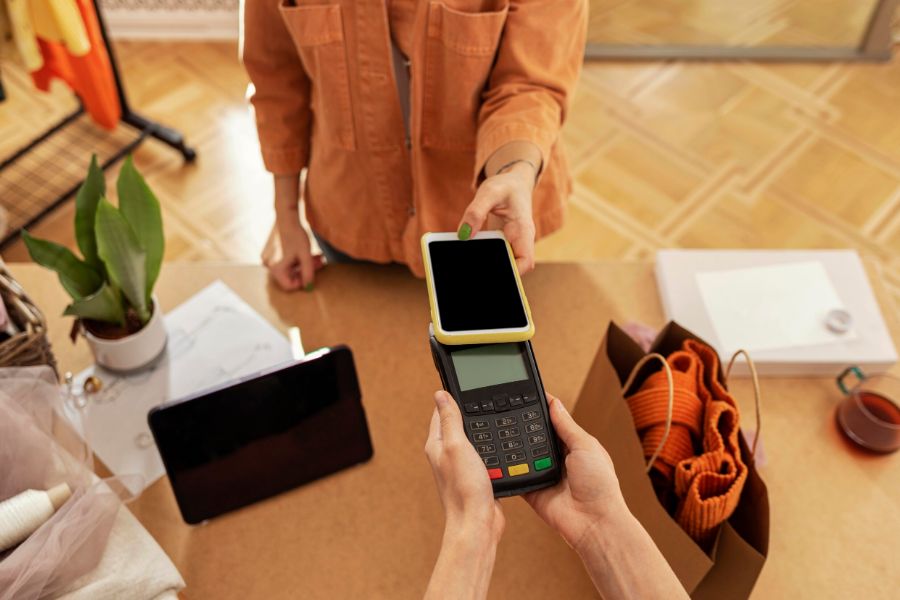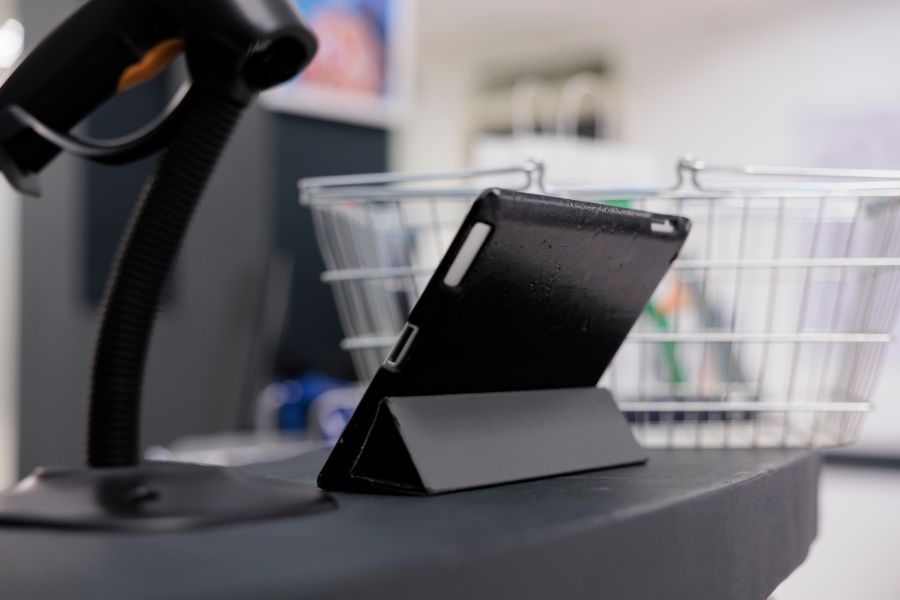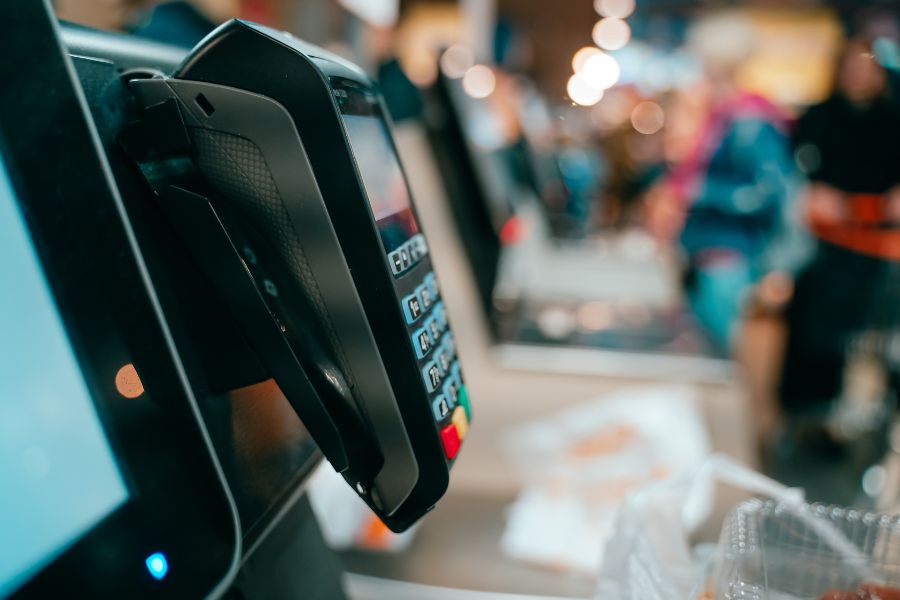Your business stands at the forefront of a retail revolution where a virtual POS terminal is not just beneficial, but a critical component of success. With the digital shift accounting for over 50% of transactions in the past year, the stakes are high, and the right technology is key. A seamless checkout experience can set you apart, and a reliable virtual POS system is the linchpin to achieving that. This article delves into the pivotal role that virtual POS terminals play in the retail landscape and why they are indispensable for businesses aiming to excel.
What is a Virtual POS Terminal?
A virtual POS terminal is an adaptable, web-enabled interface that facilitates electronic payments across various channels—whether that’s over the phone, through mail orders, via fax, by email, or even in person.
It transforms any internet-connected device like a desktop, laptop, smartphone, or tablet into a fully-functional POS system, eliminating the need for additional hardware or software investments. For face-to-face transactions, you have the option to connect a card reader via USB, but it’s not mandatory. All you need to process credit card payments through a virtual terminal is a merchant account tied to a payment gateway, along with a reliable internet connection and a web browser.
| Differences | Normal POS | Virtual POS Terminal |
| Hardware | Dedicated POS hardware costs money to purchase, maintain, and upgrade. | Separate POS software to install on any electronic device with a user interface (phone, tablet, computer…) |
| Features | Card ReaderNFC ReaderBarcode Scanning | Normal POS features Omnichannel IntegrationCustomer Self-CheckoutRemote Payment On Demand |
| Cost | The average normal POS system with hardware included ranges from $1,000-$6,000 yearly, not including additional maintenance costs. | The average Virtual POS Terminal costs range from $500-$2,000 yearly. |
How Important is a Virtual POS Terminal?
The role of a virtual POS terminal is now a cornerstone in modern retail operations, providing a level of adaptability that far surpasses traditional offline payment systems.
- No faults and no maintenance
Physical POS systems are notorious for their susceptibility to hardware issues, with 8 out of 10 retailers facing such problems annually. Unlike these, virtual POS terminals eliminate the risk of physical damage and associated downtime—you simply switch devices and continue with your sales, ensuring business continuity.
- Various payment methods
The digital consumer’s expectation for various payment options is met with ease by virtual POS terminals. While physical terminals slowly adapt, virtual systems seamlessly integrate an ever-expanding suite of payment methods, catering to regional preferences and enhancing customer satisfaction.
- Management of remote payments
A virtual POS terminal offers unparalleled accessibility, allowing you to manage transactions anytime, anywhere, on any device. This flexibility is essential for today’s omnichannel shopping experiences, where customers expect to move fluidly between in-store and online environments.
Tools like ConnectPOS exemplify virtual systems’ capability to sync orders and customer data in real-time between online and physical stores, streamlining operations and eliminating the need for manual data entry.
- Enhance transaction security
Virtual POS terminals often come with robust security measures to protect sensitive payment information. This may include encryption, tokenization, and compliance with industry security standards like PCI DSS. Highlighting the enhanced security features could reassure readers about the safety of transitioning to a virtual system.
- Extensive integration and scalability
Virtual POS systems can easily integrate with other business software, such as inventory management, accounting, and CRM systems. This integration facilitates better data synchronization and streamlines business operations. Additionally, they can scale with your business growth without significant hardware investments.

Key Features of Virtual POS Terminals
Virtual POS terminals have evolved to become feature-rich platforms that cater to the diverse needs of businesses and consumers alike. Nevertheless, a virtual POS terminal must have these features:
- Multi-channel payment processing: Virtual POS terminals accept payments from various channels, including online, over the phone, and in-person, offering a unified payment solution that accommodates the varied preferences of today’s consumers.
- Device agnosticism: These systems are compatible with a wide range of devices. Whether it’s a desktop, laptop, tablet, or smartphone, virtual POS terminals can turn any internet-enabled device into a secure payment processor.
- User-friendly interface: Designed with simplicity in mind, virtual POS terminals often feature intuitive interfaces that require minimal training, allowing staff to process transactions quickly and efficiently.
- Real-time data synchronization: They provide immediate updating of sales, inventory, and customer data across all business channels, ensuring accuracy and consistency in real-time, which is critical for inventory management and customer service.
- Security and compliance: Virtual POS terminals are built with strong security measures in place, including encryption and tokenization. They adhere to strict industry standards such as PCI DSS to ensure that customer payment information is handled securely.
- Customizable payment options: Businesses can tailor their payment offerings to include a variety of methods, such as credit cards, e-wallets, and alternative regional payment solutions, providing customers with the flexibility to pay how they prefer.
- Reporting and analytics: These systems often come with built-in reporting tools that provide insights into sales trends, payment method preferences, and other valuable data that can inform business decisions and strategies.
Top 3 Virtual POS Terminals For Retailers
ConnectPOS
ConnectPOS is a premier virtual POS provider, transforming traditional retail operations into omnichannel powerhouses. Its platform is designed for effortless integration with existing POS hardware, simplifying the transition from outdated systems. The service shines with its acclaimed PWA for consumers, a customer-facing application that’s highly customizable and compatible across various electronic devices, including phones, tablets, and computers. Ideal for new and seasoned store owners alike, ConnectPOS enhances the checkout process with intuitive ease.
To experience the benefits firsthand, they offer a compelling 14-day free trial, allowing retailers to witness the improvements to their service without immediate commitment.
Pros:
- Omnichannel support: ConnectPOS offers seamless integration with your existing application suite, streamlining inventory synchronization and order management with its automated process. This comprehensive approach ensures that your customers have a consistent shopping experience, whether they browse in-store, online, or on mobile devices.
- Limitless Integration: Designed to integrate with any eCommerce platform quickly, ConnectPOS boasts remarkable flexibility. You can also implement it as a standalone product. This should allow businesses to customize their system for optimal results.
- Hardware Compatibility: This POS terminal stands out for retailers seeking to upgrade their checkout system because of its wide compatibility with multiple hardware systems. For example, it works well with barcode scanners, receipt printers, and cash drawers, which makes the transition process smooth and simple
Cons:
- Lack of Proprietary Hardware: While ConnectPOS is highly versatile in integration and compatibility, it does not offer proprietary hardware solutions. Stores looking for an all-in-one POS system that includes native hardware should consider this limitation when considering ConnectPOS. However, the advantage of this approach is that businesses can choose from a wide range of hardware options to find the best fit for their needs.
Payline Data
Payline Data works with a wide range of companies. However, it specializes in the medical field, offering HIPAA-compliant tools, ACH transfers, and customized pricing. It also considers nonprofit and educational services. Like Payment Depot, Payline provides substantial fraud and chargeback protection.
Pros:
- Strong defraud and chargeback protection system for safer transactions: Payline Data offers an advanced fraud detection system to protect its clients from unauthorized payments and chargeback risks. This feature effectively minimizes your business’s likelihood of financial loss and facilitates secure transactions.
- Healthcare-centered design: Tailored specifically for the healthcare industry, Payline Data simplifies compliance management concerning HIPAA (Health Insurance Portability and Accountability Act) standards. This helps keep patient data secure and safe.
- Flexible rate and pricing: Another advantage of Payline Data is its versatile pricing model. That accommodates growing businesses by offering various plan options, ensuring cost-effectiveness.
Cons:
- No warehouse or inventory management tools: This POS terminal’s lack of inventory management tools and warehouse support can create operational challenges for businesses with extensive inventory requirements.
- Limited customer-facing features like reward programs, self-checkout, and on-demand virtual POS: Payline Data lacks several customer engagement features common in other payment processing solutions, which limits its appeal to businesses requiring these functionalities.
QuickBooks Payment
With the virtual terminal, QuickBooks Payments will stream immediately into your QuickBooks accounts if you utilize QuickBooks. This may be a no-brainer for businesses that only want a simple virtual terminal to accept payments over the phone. Indeed, the low cost of invoicing makes it an excellent alternative for B2B and other invoice-type sales.
Pros:
- Seamless integration with QuickBooks: This is a key advantage of this POS terminal, as it allows businesses to consolidate their accounting operations and eliminate manual bookkeeping effortlessly.
- A focus on US-based payment methods: These include PayPal, Venmo, American Express, and others. This ensures quick transactions and an enhanced payment experience for customers. In case you don’t know, Statista reports that in 2021, PayPal handled nearly 4.5 billion transactions, with fast transaction times being a key factor in its popularity.
Cons:
- The lack of compatibility with existing POS systems: This may require an additional investment in new equipment for businesses adopting the platform.
- The absence of dedicated tools for cultivating customer relationships: It falls short of reward schemes, integration of customer data into CRM systems, and support for non-US payment options.
Virtual POS, In a nutshell
The virtual POS terminal is not just a trend—it’s the new standard for retail and eCommerce businesses. By adopting this advanced approach to transactions, businesses can transcend the limitations of conventional POS systems, offering customers a streamlined, secure, and dynamic shopping journey. Virtual POS platforms pave the way for quicker checkouts, robust security measures, and a range of features designed to enrich the customer experience.
If you’re ready to embrace the future of commerce and elevate your business with a virtual POS like ConnectPOS, don’t hesitate to contact us!
ConnectPOS is a all-in-one point of sale solution tailored to meet your eCommerce POS needs, streamline business operations, boost sales, and enhance customer experience in diverse industries. We offer custom POS with features, pricing, and plans to suit your unique business requirements.




